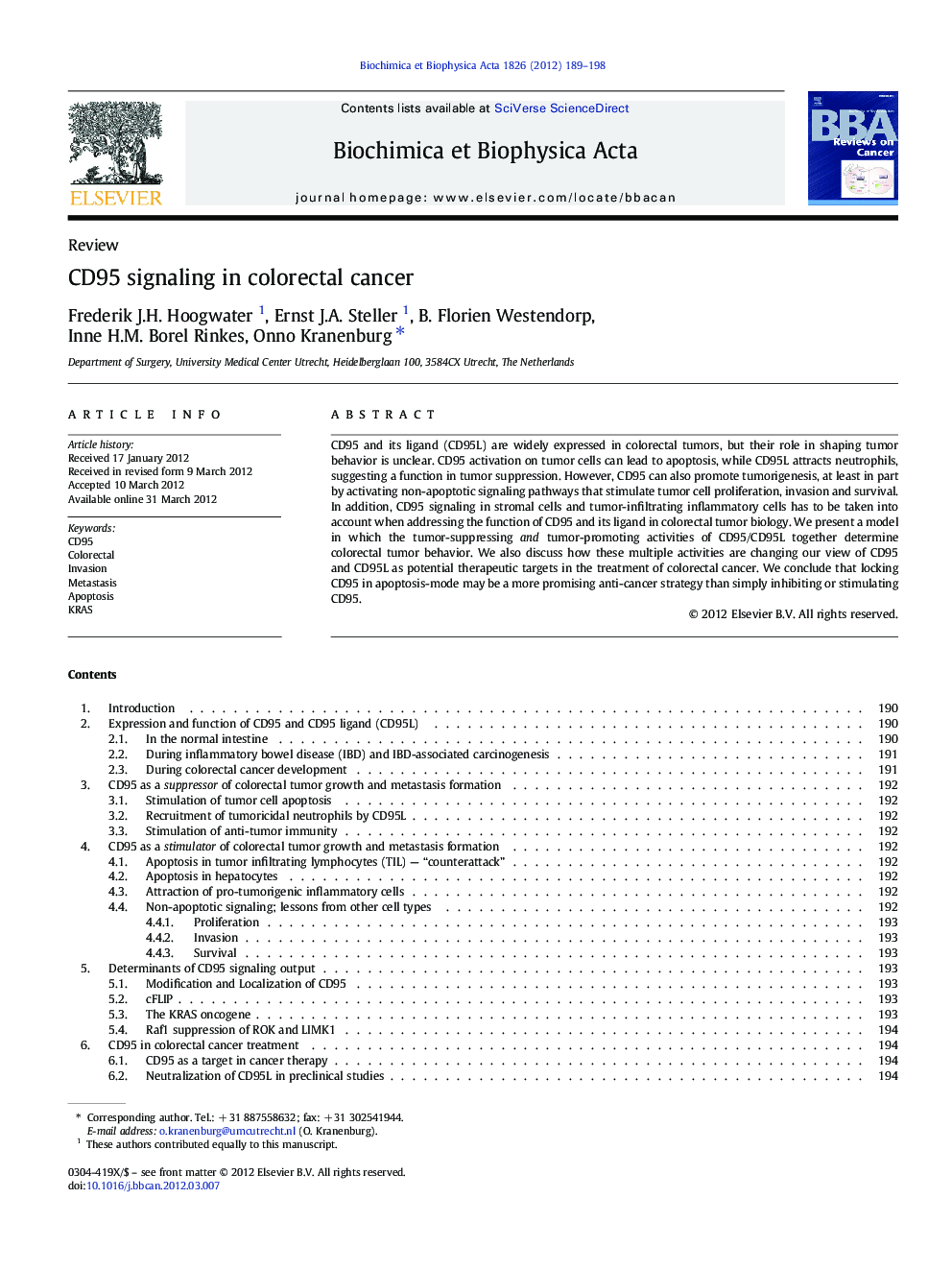| Article ID | Journal | Published Year | Pages | File Type |
|---|---|---|---|---|
| 2100965 | Biochimica et Biophysica Acta (BBA) - Reviews on Cancer | 2012 | 10 Pages |
CD95 and its ligand (CD95L) are widely expressed in colorectal tumors, but their role in shaping tumor behavior is unclear. CD95 activation on tumor cells can lead to apoptosis, while CD95L attracts neutrophils, suggesting a function in tumor suppression. However, CD95 can also promote tumorigenesis, at least in part by activating non-apoptotic signaling pathways that stimulate tumor cell proliferation, invasion and survival. In addition, CD95 signaling in stromal cells and tumor-infiltrating inflammatory cells has to be taken into account when addressing the function of CD95 and its ligand in colorectal tumor biology. We present a model in which the tumor-suppressing and tumor-promoting activities of CD95/CD95L together determine colorectal tumor behavior. We also discuss how these multiple activities are changing our view of CD95 and CD95L as potential therapeutic targets in the treatment of colorectal cancer. We conclude that locking CD95 in apoptosis-mode may be a more promising anti-cancer strategy than simply inhibiting or stimulating CD95.
